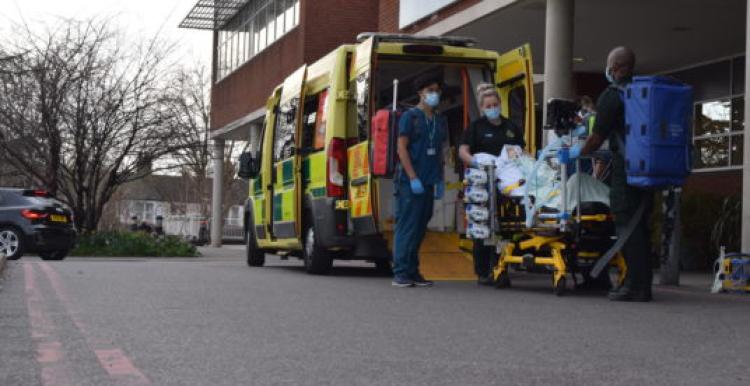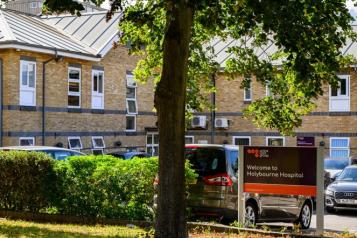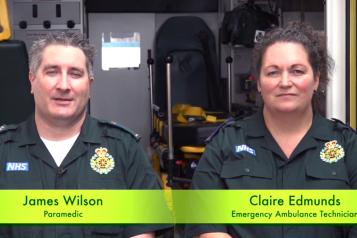ACCESS all areas for London’s critically unwell patients

The Adult Critical Care Emergency Support Service (ACCESS), a partnership of Barts Health NHS Trust, St George’s University Hospitals NHS Foundation Trust and Imperial College Healthcare NHS Trust, and the London Ambulance Service (LAS) – will see a fleet of specialist ambulances on standby in the capital so that the sickest patients who need expertly-tailored care at a specialist hospital (such as a cardiac centre or a hyper-acute stroke unit) can be safely moved between local hospitals and specialist centres.
The four vehicles will carry extra equipment, including ventilators and specialist monitors, and be staffed by expert clinicians so they effectively act as a network of mobile intensive care units.
The ambulance fleet will be based at sites across London and together are expected to transport about 2,000 patients a year.
The new pan-London service is a collaboration modelled on the successful North East London Critical Care Transfer And Retrieval (NECCTAR) service.
NECCTAR earned its reputation during the Covid pandemic for the safe long-range transfer of adults with complex needs, particularly respiratory patients on ventilators.
Crews travelled as far away as Cardiff and Newcastle, although most transfers are between London hospitals: e.g taking critically-ill heart patients to St Bartholomew’s for cardiac surgery, to St George’s for care following a brain injury or to Hammersmith Hospital for specialist kidney care.
Clinicians will staff the modified ambulances under consultant supervision. LAS will supply call handling, crews and vehicles, with other support functions carried out by partners in South West and North West London.
South East and North Central London will also benefit from this scaled up service.
Clinicians will call LAS on a dedicated phone line, staffed by experienced call handlers at the Service’s emergency control centre, who will dispatch vehicles once agreed by the ACCESS duty consultant.
Dr James Marsh, Group Deputy Chief Executive Officer for St George’s, Epsom and St Helier University Hospitals and Health Group, and chair of the London Critical Care Collaborative (LCCC) Partnership Board, said:
“Critically unwell patients always need readily accessible specialist equipment and care – especially when moving between hospitals. Our collaboration means seriously ill and injured Londoners will receive the outstanding care they need from our teams of highly-talented clinicians, no matter where they live in the capital. We’re very proud of the lifesaving care we offer our patients at St George’s, and being part of this network will mean we can expand our reach by helping support and care for Londoners as they move between hospitals.”
Dr Mamoun Abu-Habsa, Joint Clinical Director of ACCESS, said:
“Moving critically unwell patients across hospitals is inherently a high-risk activity, this transformational mobile ICU capability streamlines practice, education, transfer operations and overarching governance within a single service and a unified vision of equity of access to specialist care”
“Our Pan-London Specialist Teams will facilitate equitable access to highly specialised cardiac, trauma, neurosurgical and burns care and repatriate patients back to their local Intensive Care Units anywhere in the country. This is the largest such service in England.”
Daniel Elkeles, Chief Executive at London Ambulance Service, said:
“Every year, we respond to millions of 999 and 111 calls and are proud to be the capital’s emergency and urgent care responders. Beyond that initial response to people in their hour of need, we are delighted to play a vital role in the safe transfer of critically-ill patients if and when they need it and are pleased to help expand this service across the capital.
“These ambulances have been modified to carry more specialist equipment, such as additional monitors and ventilators, and by working in partnership with our NHS colleagues in London we can ensure that our sickest patients can get the best possible care.”
David O’Callaghan, Critical Care Lead for North West London and Site Medical Director for Charing Cross at Imperial College Healthcare NHS Trust said:
“North west London has a long history of education and training in transferring critically unwell patients. This knowledge helped the north west London transfer service, hosted initially by Royal Brompton and Harefield hospitals and latterly by Imperial College Healthcare, move large numbers of patients around the capital during and after the Covid-19 pandemic, collaboratively and with participation of trained staff from across the sector.
“We’re excited to be part of this new London-wide transfer service and look forward to sharing what we’ve learnt about transfers with our partners.”


